How mobile mesh helps Big Bison Logistics keep people safe
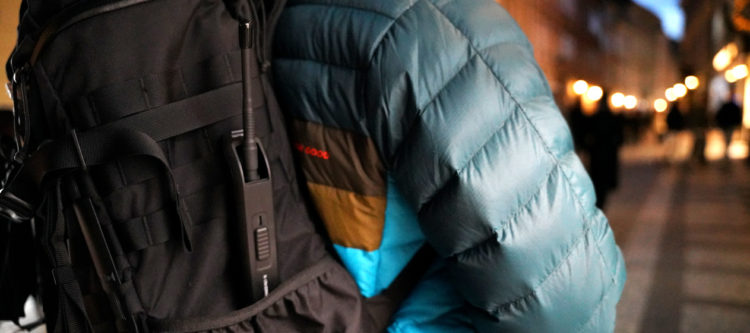
Ensuring that executives, celebrities, dignitaries, and other notable individuals get where they need to go and do so safely is a complicated task with many moving parts. It’s not like the CEO of a hot tech startup, a high-profile entertainer, or a government leader can simply call an Uber and wait for it to arrive on a street corner like everyone else.
To ensure the safe travels of individuals like these, personal safety and logistics companies work their magic in the background. These organizations choreograph trustworthy individuals, vehicles, and clients into an elegant dance that sees cars arrive and doors open at just the right times, and that the safety and privacy of everyone involved are assured.
But to make this seamless, fluid ballet a reality, communication between all parties is essential.
One of the organizations that specialize in personal safety and logistics advising and consulting is Big Bison Logistics. The company has been offering event security, personal security, and logistics services for more than 20 years and in every corner of the globe.
We recently sat down with the Founder and CEO of Big Bison Logistics, Todd Sheets (TS), to get a better understanding of the communications challenges these organizations face in their important, albeit difficult, line of work, and how emerging technologies – like mobile mesh networking – are helping to keep their contractors connected.
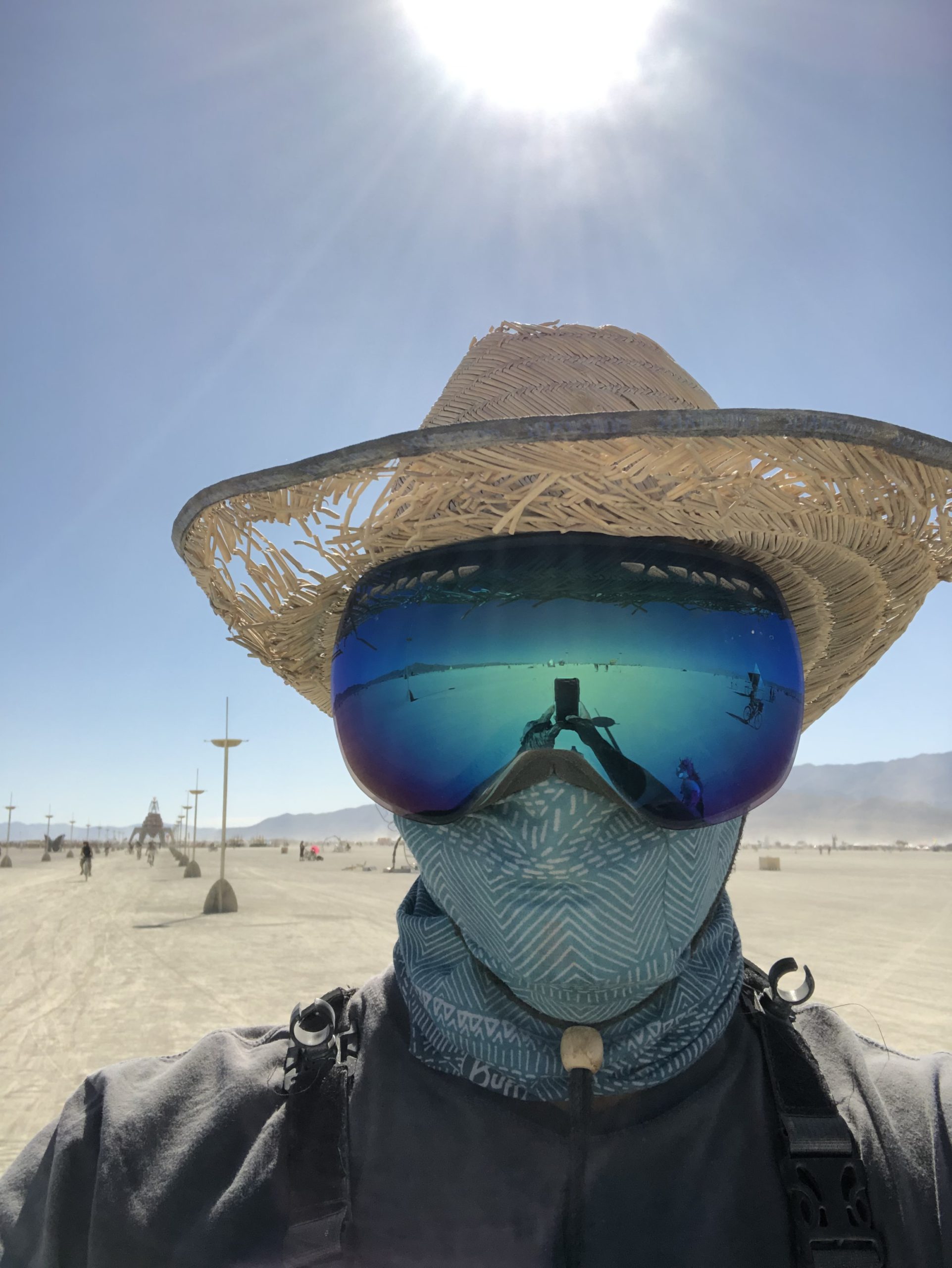 The Last Mile (TLM): Can you tell our readers a bit about Big Bison Logistics? What does the company do, and what kinds of services does it offer?
The Last Mile (TLM): Can you tell our readers a bit about Big Bison Logistics? What does the company do, and what kinds of services does it offer?
TS: Big Bison Logistics is a boutique personal services company that offers a number of different solutions including travel safety advisory and consulting, and personal security consulting.
We also occasionally provide services related to special events or small group gatherings and travel adventures.
TLM: Can you tell us about your role at Big Bison Logistics and how the company got its start?
TS: I am the Founder and the CEO of the company. I serve as the point of contact for customers, and I also lead project management and planning.
I first got into this market approximately 15 years ago. The company was originally more focused on personal security and executive protection, but the more experience we received, the more we realized that there is a lot more to the job than security.
Today, our customers hire us to be trustworthy people that execute larger logistics strategies for their principals and executives. What’s the difference? While that may seem like personal security, there is a lot more logistics management, travel planning, and coordination that is involved. We’re responsible for everything that has to happen in the background so that everything runs smoothly in the foreground.
For example, an executive leaves an office building. Suddenly, a car pulls up at the street corner to whisk them away to the airport, to their hotel, or to their home. The door opens and that executive or principal steps in, trusting that everyone in the car is trustworthy. The client never sees or has to worry about all of the planning and coordination that happens to make that process run smoothly because we’re responsible for handling it.
“…with most clients…we don’t have substantial planning time or the budget to stage things in advance. In most scenarios, we have just enough time to grab a bag of devices and run out…” – TS
Some people might call that security – and the end results might be security – but the reality is that we take care of all the logistics. We make sure that the car shows up at the right door, at the right place, at the right time, and with the right driver. Because of the sophisticated needs and requirements of our customers, most of the contractors on our team are former military or government workers with deep experience and expertise in personal services and logistics management.
TLM: What kinds of individuals and companies does Big Bison tend to work with? Who are the people getting into those perfectly timed and coordinated cars?
TS: Many of our customers are high-net-worth individuals. We’re often hired by those individuals directly and occasionally hired by their companies.
Regardless of whether they’re the CEO or Founder of an exciting technology startup or the CEO of a large corporation, many of these individuals want the same things. They value their personal space and personal lives and need an organization like ours to ensure that those things are protected, and their needs are met.
TLM: Where are your services being performed for these individuals? Do you mostly operate in cities and urban environments?
TS: We operate everywhere – from the middle of the desert with no antennas around for miles – to major urban centers. We’ve even had to provide logistics and advisory services in tropical paradises most people will never see.
Regardless of how remote these places are – there is still the expectation that a car will show up when and where it’s needed. There is still a need for our contractors to be able to communicate. Communication is a great equalizer. If comms fail and plans change, you’re toast. Communication enables and supports everything that we do.
TLM: Why does the company say that an individual’s largest problems occur when they “become prominent or successful?” What kinds of problems are we talking about?
TS: There is a direct relationship between fame and wealth and how much information is available about you on the Internet. The advent of the Internet and social media has made the successful, wealthy, and famous much more recognizable and locatable. They are capable of making a CEO or other executive into a celebrity – even if they don’t want to be.
What we’ve found is that the Internet and social media can make any arbitrary executive into someone that can be exploited for wealth or advancement. And these individuals need a way to discern the intentions of the people that approach them out in the world.
When someone recognizes a high-net-worth individual – or looks them up on social media or the Internet and learns who that person is – they feel like they can approach them. But what are their intentions? Are they looking for an autograph or a selfie? Or is this someone that was laid off from the company and is seeking revenge?
When someone is prominent, wealthy, or successful, they need to assess that and determine a person’s intentions at a very short distance and in a very small period of time. They need help from organizations like ours, which can “stack the deck” to ensure that bad things don’t happen when they’re simply trying to live their life or eat out at a restaurant.
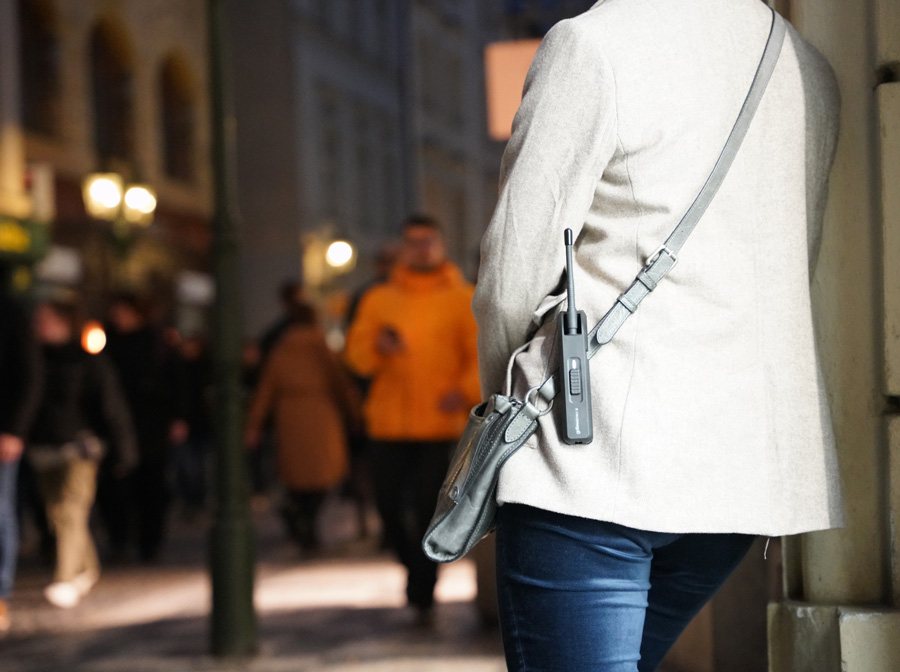
TLM: What logistical and communications challenges do private security teams face when they’re protecting wealthy or prominent individuals?
TS: Communications are critical in our line of work. Bad comms can get you killed or mess up an operation – regardless of size. In fact, that is one of the reasons why I first started tinkering with goTenna solutions – the realization that cellular service didn’t always work when and where we needed it.
We often have multiple backup forms of communication in case one doesn’t work. Often, this involves having multiple cell phones on different networks. But we found that – when the problem is cell coverage – multiple different service providers might not work. Maybe the location was too remote, or we were in a structure that restricted cellular signals.
Having redundancies doesn’t help when both my AT&T and T-Mobile phones don’t work. I just need to let my person know that the car they’re expecting is stuck in traffic because of an accident, and my hands are full of communications devices that don’t function. We need to be able to somehow communicate – aside from smoke signals or carrier pigeons – when our traditional cellular networks are denied.
TLM: Why would a company like Big Bison need mobile mesh networking solutions? What capabilities or functionality do these solutions provide to the team?
TS: One of the interesting things about our job is that – with most clients – we don’t have substantial planning time or the budget to stage things in advance. In most scenarios, we have just enough time to grab a bag of devices and run out because we just got a call from a client that needs us in Dallas tomorrow.
In situations like that, we don’t have the opportunity to get there in advance and analyze the area. We can’t get there in advance and identify where cell signals are available and which networks work in which locations. We also don’t have the time necessary to build out our own network – which would involve scouting locations and deploying equipment in advance.
Mobile mesh networking gives us the ability to establish a backup form of communication should cell networks fail or be unavailable. It also allows us to rapidly establish our own ad-hoc network that will function even when cell networks fail.
I say that we use mobile mesh devices as a secondary or backup form of communication, but they could also be used as the primary form of communication in our PACE plans with enough planning and preparation. Since we’re often operating by the seat of our pants, we don’t always get the opportunity to strategically place mobile mesh networking nodes in advantageous places – we often have them on the roofs of our cars. But, with the time to plan and deploy mobile mesh radios strategically, it could be used as our primary source of communication.
TLM: Are there other capabilities that mobile mesh delivers that make it a good fit or solution for Big Bison’s unique requirements?
TS: Believe it or not, the messaging element of mobile mesh is extremely attractive in our line of work. Our contractors operate most effectively when they blend in with their surroundings. Traditional voice communications require that our contractors wear earpieces to hear. While these are mostly invisible to those that aren’t looking for them, they can be conspicuous to those that are.
Being able to message as opposed to hearing through an earpiece can make it easier for our contractors to fit in. Everyone these days is messaging and looking down at their phones all the time, so having our contractors do the same actually makes it easier for them to blend in with the people around them.
“Regardless of how remote these places are – there is still the expectation that a car will show up when and where it’s needed. There is still a need for our contractors to be able to communicate.” – TS
Then there’s the interoperability of mobile mesh networking, which is incredibly useful for how we operate. If cellular networks aren’t an option, we need another way to communicate within our team, and with our client. Mobile mesh radios work seamlessly by connecting via cable or Bluetooth with practically any smartphone or connected device. No matter what device they have, it will work with the mobile mesh network.
Being able to simply hand one of our contractors or clients a mobile mesh networking device and be able to communicate with them instantly in any environment is incredibly helpful.
TLM: Why does Big Bison choose to work with goTenna? What about its products and solutions makes it the best choice for Big Bison’s needs?
TS: I tried out a few different mobile mesh networking devices over the course of a few years, and they all failed miserably. There were quite a few mobile mesh solutions that wound up getting smashed out of frustration and thrown into dumpsters.
The early goTenna solutions that we tested simply worked. They did the job that we needed them to do and worked when we needed them to work.
Following COVID, as we staffed up and prepared to get busy again as lockdowns and travel restrictions were lifted, we saw that goTenna had released a new version of their goTenna Pro X solution. This new, hardened, enterprise-grade version of goTenna’s solution really meets our needs.
TLM: You mentioned that Big Bison also occasionally does event security. Do you have any anecdotes or experiences you can share about how you’ve leveraged mobile mesh in these scenarios?
TS: We don’t tend to do large events, such as the Super Bowl or music festivals. There are different companies that specialize in those events.
However, Big Bison has provided event security to smaller-scale, more intimate events. These events often are limited to just a few hundred people, and often involve high-profile individuals – such as corporate executives, or entertainers.
In these scenarios, we leverage mobile mesh for many of the same reasons why we use it for other missions and requirements – it works to deliver communications when other networks or solutions fail.
In one instance, we were asked to provide event security for a small, intimate event that was taking place in a subterranean environment. The thick, concrete floors and structures, and the underground nature of the location made it almost impossible to receive a cell signal.
Luckily, in this instance, we were able to proactively plan and deploy the systems that we needed to do our job. Since the client owned the space, we were able to go in prior to the event and build a mobile mesh network by deploying nodes with built-in battery packs in strategic locations around the facility. We were then able to test and evaluate the network to ensure that there were no blind spots where communications weren’t available.
In that instance – in an entirely underground environment – cellular networks were completely unavailable. Mobile mesh became our primary form of communication, and we were able to stay online. The guests at the event were unable to communicate or message, but we could still interact with each other.


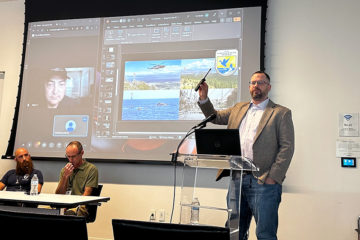
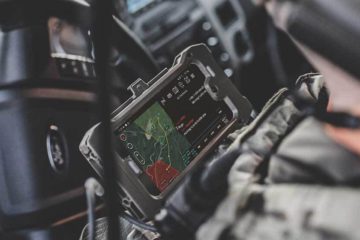
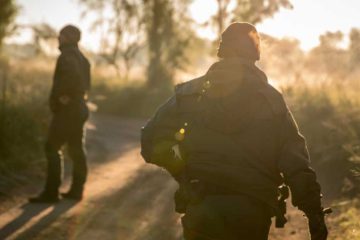


No Comment